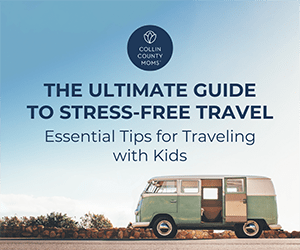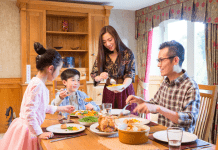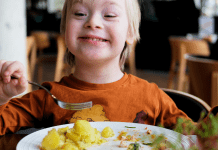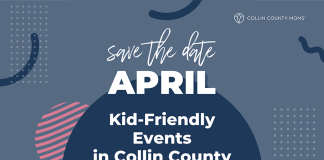It’s November and most years for all of us that means some sort of election will happen. After tumultuous elections in recent years, most of us bristle when we even hear words like election or politics. Whether or not we particularly “like” politics, it matters. What is happening in our city, state, and country matters, not just during election season! Hear me out when I say I think it’s important that we as moms and parents talk to our kids about politics.
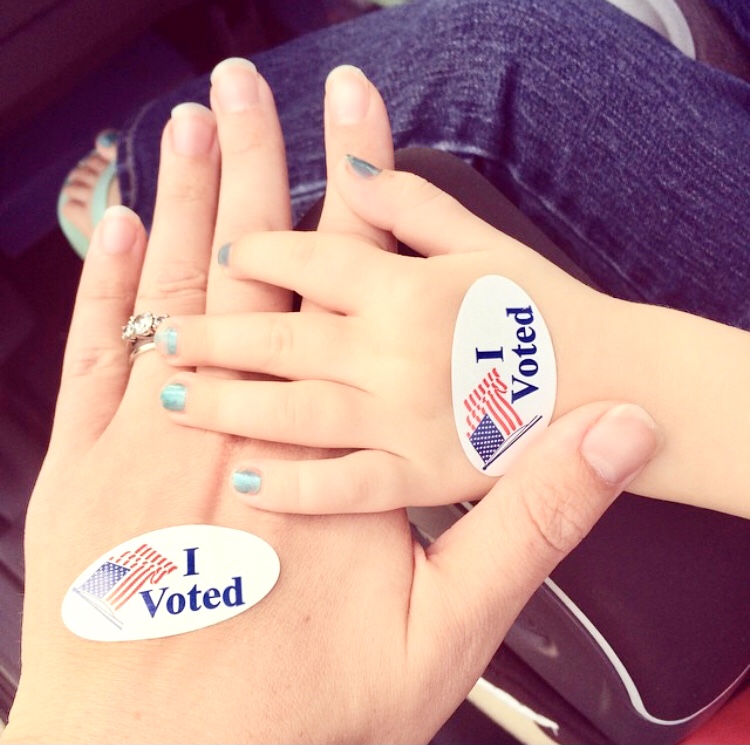
The news has always been a part of my life. I grew up watching the news with my family, or at least knowing it was on, and having the newspaper in our house daily. I’m talking the nightly news, not opinion talk shows. Being informed about current events taught me that the world was bigger than me and my small circle. Hearing about world conflicts, triumphs, and tragedies taught me that life is full of ups and downs, and the world ebbs and flows.
And like many topics, it’s important to just assume that your kids are talking about (or repeating) things they hear about the news and politics, especially with the prevalence of social media, technology, and the ease at which information is transferred. I remember clear as day when my five year old came home during the 2016 election cycle, asking me a very specifically strongly worded question about a quite polarizing topic. I knew by the way she said it that the child she heard it from was repeating something they heard from a parent or adult in their life. So they’re talking about things, I guarantee it!
Kids are capable of learning about current events in a developmentally appropriate way and I believe we owe them that.
I am an advocate for listening to the news, caring about policy, and involving kids in developmentally appropriate conversations. I’m also an advocate for having respectful and compassionate conversations and teaching our kids to do the same. We can model this in our homes and conversations, so when our kids go out into the world, they are ready to engage in these important conversations with grace and understanding!
Tips on Talking to Kids about Politics & Current Events
Be aware of your language
When your kids are around be aware of how you’re talking about policies, political, and civic leaders. Avoid name calling, inflammatory language, or exaggerations. It’s perfectly fine to talk about how you disagree with a decision or a person, but the way you do it matters.
Teach phrases that foster productive conversation
I think we have been somewhat conditioned to think that any conversation where disagreement is present is a no no. We all have different opinions and we’re going to disagree. It’s how we do it that matters. I was listening to one of my favorite podcasts (Pantsuit Politics) recently and they were talking about this very topic. Something they suggested stuck with me. They talked about using the phrase “I see things differently.” After listening to someone you disagree with, consider a phrase like that. “That’s an interesting point; I see things differently” or something similar. I love that gentle acknowledgment that respectfully allows an open mind that others have a different perspective. After all, if we don’t talk to each other, nothing gets done! 
Teach & model different perspectives
It’s important to constantly remind our kids that there ARE in fact different perspectives and opinions out there so they are not shocked when they hear them! Building our families on our own individual values is important, but so is listening and respecting those with values and world views that differ. An easy way to practice this in our homes is to recognize and acknowledge differing opinions right in your own home. Whether who likes what dinner, opinions about movie night choices, etc., use these opportunities to model these productive conversations so that our kids can take these skills out into the world.
Know when to walk away
This goes for any type of conversation, not just one about politics and the news. Teach your children how to know when to walk away. If the other person in the conversation seems intent purely on arguing, unwilling to listen to another perspective, then maybe it’s time to use that gentle phrase, “Well, I see things differently” and end the conversation. Additionally, I like to tell my kids that it’s fine to have opinions but it’s important to understand when those opinions just need to stay in your head. I think it’s perfectly fine for there to be disagreement in a conversation, even healthy and respectful debate, but it’s important to know when to draw the line.
Our world matters. I want my kids to know that their voice matters and that what is happening around them matters. Through respect and understanding, conversation and compromise, we can all work together to make our world a better place!
Here are a few resources I have listened to lately that have helped me in my own personal interactions and how I teach my children to converse with others (the podcasts link to Apple Podcasts, but you can find these on other podcast hosts as well, such as Spotify):
Sharon Says So podcast with The American Moms
Emily Ley podcast with Sharon Says So




